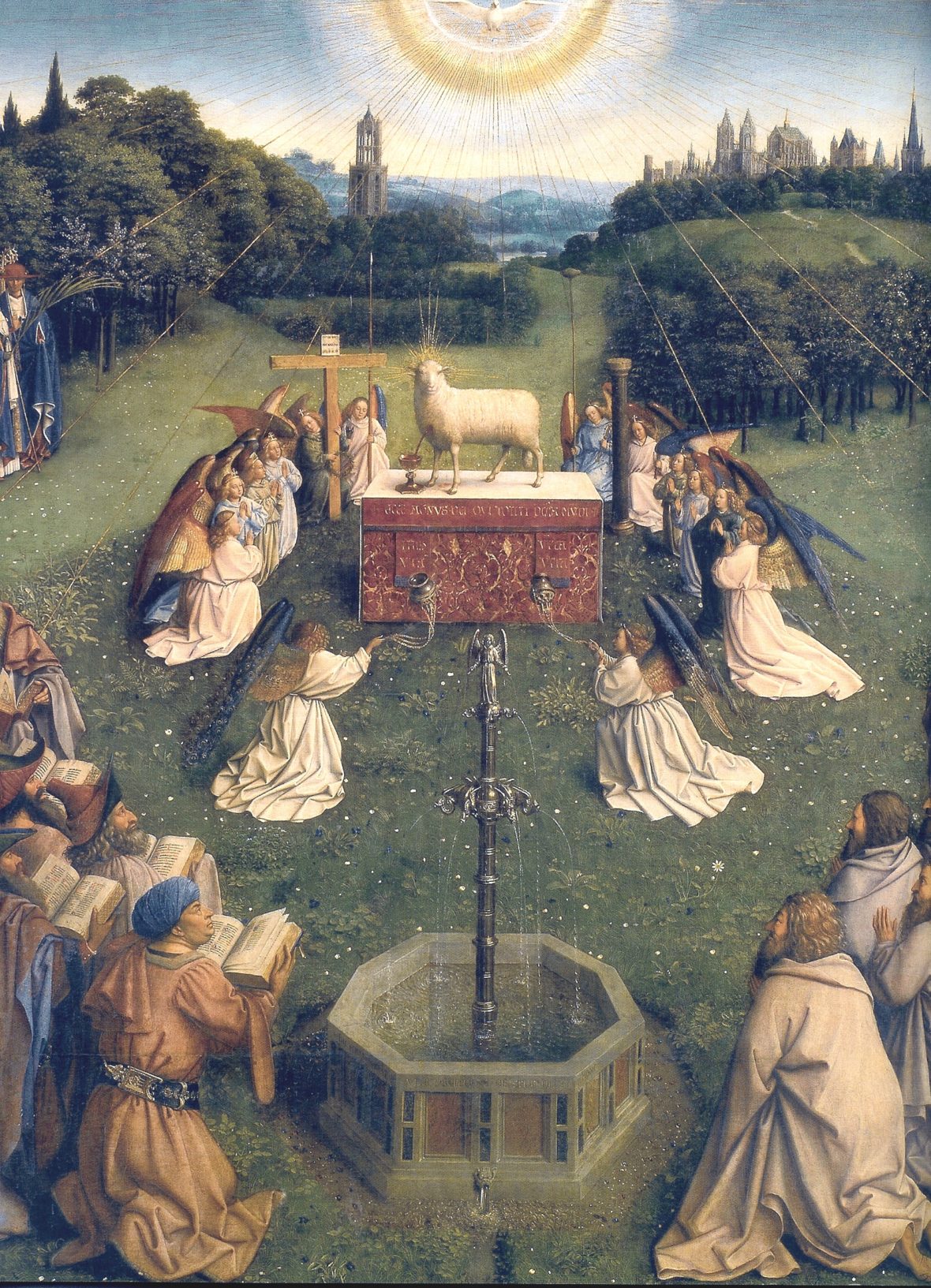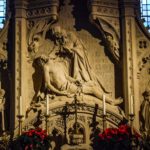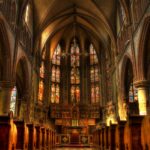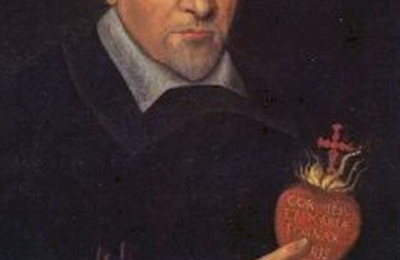In those days, Isaias said: “The Lord has opened my ear, making known His will to me, and I do not resist: I have not gone back. I have given my body to the strikers, and my cheeks to them that plucked them: I have not turned away my face from them that rebuked me, and spit on me. The Lord God is my helper, therefore am I not confounded. He is near that justifies me, who will contend with me? Let us stand together. Who is my adversary? Let him come near to me. Behold the Lord God is my helper: who is he that will condemn me? Lo, they will all be destroyed as a garment, the moth will eat them up. Who is there among you that fears the Lord, that hears the voice of His servant? He that has walked in darkness, and has no light, let him hope in the name of the Lord, and lean upon his God.” ~Isaias 50: 5‒10, Lesson for Monday of Holy Week
Today, on Monday of Holy Week, the Church calls us in her liturgy to remember the Lamb of God (Agnus Dei). Dom Prosper Guéranger (b. 1805- d. 1875) wrote a reflection on the liturgy of this day in his book, The Liturgical Year. Dom Prosper wrote:
The sufferings of our Redeemer, and the patience with which He is to bear them, are thus prophesied by Isaias, who is always so explicit on the Passion. Jesus has accepted the office of victim for the world’s salvation. He shrinks from no pain or humiliation: He turns not His Face from them that strike Him and spit on Him. What reparation can we make to this Infinite Majesty, who, that He might save us, submitted to such outrages as these? Observe these vile and cruel enemies of our Divine Lord: now that they have Him in their power, they fear Him not. When they came to seize Him in the Garden, He had but to speak, and they fell back on the ground. But He has now permitted them to bind His hands and lead him to the High Priest. They accuse Him. They cry out against Him. And He answers but a few words. Jesus of Nazareth, the great Teacher, the wonder-worker, has seemingly lost all His influence. They can do what they will with Him. It is thus with the sinner. When the thunderstorm is over, and the lightning has not struck him, he regains his courage. The holy Angels look on with amazement at the treatment shown by the Jews to Jesus, and falling down, they adore the Holy Face, which they see thus bruised and defiled: let us, also, prostrate and ask pardon, for our sins have outraged that same Face.
But let us hearken to the last words of our Epistle: “He that has walked in darkness, and has no light, let him hope in the name of the Lord and lean upon his God.” Who is this but the Gentile, abandoned to sin and idolatry? He knows not what is happening at this very hour in Jerusalem. He knows not that the earth possesses its Saviour, and that this Saviour is being trampled beneath the feet of His own chosen people: but, in a very short time, the light of the Gospel will shine on this poor Gentile: he will believe. He will obey. He will love his Redeemer, even to the laying down his life for Him. Then will be fulfilled the prophecy of the unworthy Pontiff, who prophesied against his will that the death of Jesus would bring salvation to the Gentiles, by gathering into one family the children of God that hitherto had been dispersed (John xi. 52).
The Babe, born of Mary, is the Lamb of God.
Sinners, take hope: our salvation is at hand.
And, as the Lesson says today:
“He that has walked in darkness, and has no light, let him hope in the name of the Lord and lean upon his God.”
~SCF
~Image: Ghent Altarpiece, circa 1432, Adoration of the Mystic Lamb, source.






